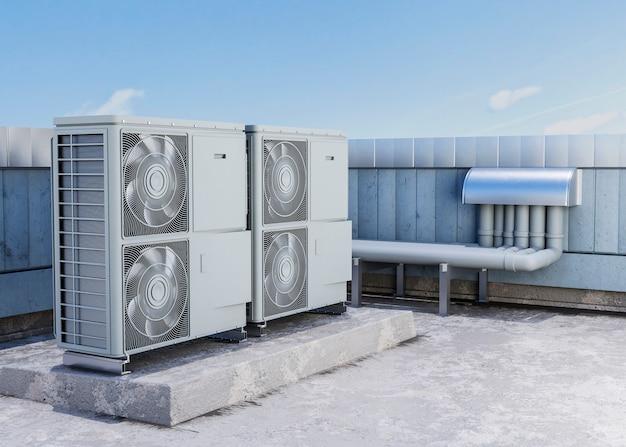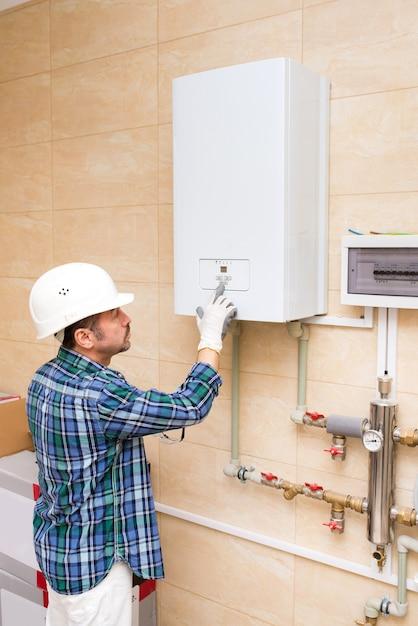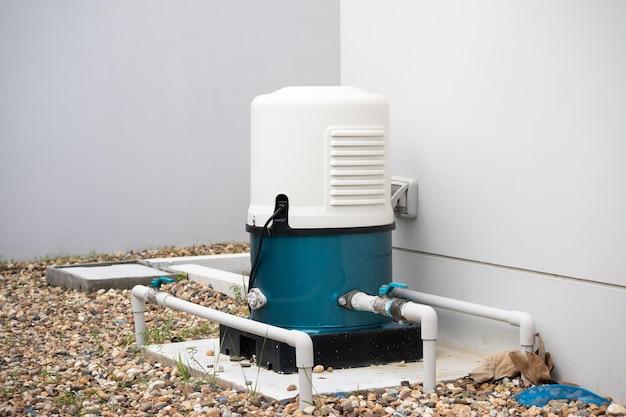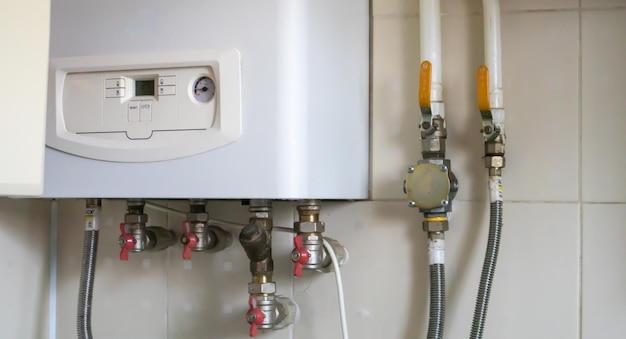With the increasing popularity of tankless water heaters, many homeowners are considering outdoor installations to free up space indoors and enjoy the benefits of on-demand hot water. But before you embark on this project, there are certain requirements and considerations to keep in mind. In this blog post, we will explore the ins and outs of installing an electric tankless water heater outdoors, answer common questions like whether they can be installed indoors or in cold climates, and discuss the need for venting and professional electrical assistance. So, let’s dive in and discover everything you need to know about outdoor installations of electric tankless water heaters.
Electric Tankless Water Heater Outdoor Installation
Benefits of Installing an Electric Tankless Water Heater Outdoors
When it comes to installing a water heater, the location is an important consideration. Many homeowners are now choosing to install their electric tankless water heaters outdoors, and for good reason. There are several benefits to this outdoor installation:
1. Space-saving Solution
By installing your electric tankless water heater outdoors, you can free up valuable space inside your home. Traditional tank-based water heaters take up a significant amount of room, often located in a basement or utility closet. With an outdoor installation, you can reclaim that space for other purposes or simply enjoy the extra room.
2. Enhanced Energy Efficiency
Electric tankless water heaters are already known for their energy efficiency. However, by installing the unit outdoors, you can further enhance its efficiency. The outdoor environment provides adequate ventilation and eliminates the need for venting systems or indoor air intake. This means that the heater can operate at its full potential, resulting in lower energy consumption and reduced utility bills.
3. Easy Maintenance and Replacement
Maintaining and replacing a water heater can be a hassle, especially when it is located inside your home. By installing an electric tankless water heater outdoors, you can easily access the unit for routine maintenance or when it’s time for a replacement. No more climbing into tight spaces or maneuvering around obstacles, making the entire process much more convenient and straightforward.
Important Considerations for Outdoor Installation
While there are many benefits to installing an electric tankless water heater outdoors, there are a few important considerations to keep in mind:
1. Climate Compatibility
Before installing your water heater outdoors, consider your climate. Electric tankless water heaters are typically designed to withstand a certain range of temperatures. If you live in an area with extreme cold or hot weather conditions, it is essential to choose a unit that is suitable for your specific climate.
2. Protection from the Elements
While electric tankless water heaters are built to withstand outdoor conditions, it is still important to protect the unit from the elements. A durable waterproof enclosure or housing can keep your water heater safe from rain, snow, and other weather elements, ensuring its longevity and efficient performance.
3. Professional Installation
To ensure the proper installation and functionality of your electric tankless water heater, it is highly recommended to hire a professional. They have the knowledge and experience to handle the electrical and plumbing aspects of the installation, guaranteeing that everything is done safely and correctly.
In conclusion, installing an electric tankless water heater outdoors offers numerous benefits, including space-saving solutions, improved energy efficiency, and easier maintenance. Consider climate compatibility, protect the unit from the elements, and always opt for professional installation. With these considerations in mind, you can enjoy the convenience and efficiency of an electric tankless water heater while maximizing the use of space in your home.
Water Heater Outside Enclosure
Why You Need an Outdoor Enclosure for Your Electric Tankless Water Heater
If you are considering installing an electric tankless water heater outdoors, it is essential to understand the importance of having a proper enclosure. Not only does it protect your water heater from the elements, but it also ensures the safety and longevity of the unit. Here are a few reasons why investing in an outdoor enclosure is a smart decision:
Protection from the Elements
Rain, snow, and extreme temperatures can wreak havoc on your electric tankless water heater. By installing it in an outdoor enclosure, you shield it from these elements, reducing the chances of damage and extending its lifespan. Plus, you won’t have to worry about any unexpected malfunctions caused by exposure to harsh weather conditions.
Preventing Pest Intrusions
If there is one thing pesky critters love, it’s warm and cozy spaces to nest in. Without an outdoor enclosure, your electric tankless water heater becomes an attractive spot for rodents or insects seeking shelter. By enclosing it, you create a barrier that deters pests, ensuring your water heater remains free from unwanted guests.
Added Security
An outdoor enclosure also adds an extra layer of security to your electric tankless water heater. It acts as a deterrent to potential thieves who might see the unit as an easy target. With the enclosure in place, it becomes much more challenging for unauthorized individuals to access and tamper with your water heater.
Extended Lifespan
By protecting your electric tankless water heater from the elements, pests, and unauthorized access, you are effectively increasing its lifespan. A water heater that is sheltered in an outdoor enclosure is less prone to wear and tear, reducing the frequency of repairs and replacements. This means you can enjoy hot showers and savings on your energy bills for years to come.
Design Considerations
When choosing an outdoor enclosure for your electric tankless water heater, consider aspects such as size, material, and ventilation. The enclosure should be spacious enough to accommodate the water heater and its necessary clearances. Opt for a sturdy material that can withstand harsh weather conditions and provide adequate insulation. Make sure the enclosure allows for proper ventilation to prevent heat buildup and maintain optimal performance.
Investing in an outdoor enclosure for your electric tankless water heater is a wise decision. It offers protection from the elements, prevents pest intrusions, adds an extra level of security, and extends the lifespan of your unit. When selecting an enclosure, pay attention to the design and ensure it meets all the necessary requirements. By taking these steps, you can enjoy the benefits of a reliable and efficient water heater for years to come.
Outdoor Tankless Water Heater Installation Requirements
If you’re considering installing an electric tankless water heater outdoors, there are a few important requirements to keep in mind to ensure a successful and efficient installation. Let’s dive into the key factors you need to consider.
Location
Choosing the right location for your outdoor tankless water heater is crucial. It should be installed in an area protected from the elements, such as under an awning or in a weatherproof enclosure. This will help prevent damage from rain, snow, and extreme temperatures, ensuring your water heater operates smoothly year-round.
Ventilation
Proper ventilation is essential for the safe and efficient operation of your tankless water heater. Make sure the installation area allows for sufficient airflow to prevent heat buildup. This can be achieved by providing adequate clearance around the unit and ensuring there are no obstructions that could impede airflow.
Electrical Requirements
Before installing an electric tankless water heater, it’s important to ensure that your electrical system meets the necessary requirements. Make sure you have the appropriate voltage and amperage capacity to accommodate the water heater’s demands. If you’re unsure, consult with a professional electrician to ensure a safe and reliable installation.
Plumbing Considerations
In addition to electrical requirements, you also need to consider your plumbing setup. The installation area should have easy access to the main water supply and any necessary plumbing connections. It’s also important to ensure proper drainage to prevent water pooling or damage to the surrounding area.
Professional Installation
While some confident DIYers may be tempted to install an outdoor tankless water heater themselves, it’s generally recommended to hire a professional for this type of installation. They have the knowledge and expertise to ensure all requirements are met, and they can help troubleshoot any potential issues during the installation process.
Now that you’re aware of the various requirements for outdoor tankless water heater installation, you can proceed with confidence. Remember to find an appropriate location, ensure proper ventilation and electrical capacity, consider plumbing needs, and, above all, don’t hesitate to seek professional help if needed. With these considerations in mind, you’ll be well on your way to enjoying the benefits of an electric tankless water heater in your outdoor space.
Can I Install an Electric Tankless Water Heater Outside
Yes, You Can! Here’s Why It’s The Perfect Solution.
Are you tired of your old, clunky water heater taking up valuable space inside your home? Do you long for a more efficient and convenient way to enjoy hot water? Well, installing an electric tankless water heater outside might just be the answer you’re looking for!
Benefits of Outdoor Installation
- Space-saving Solution: By moving your electric tankless water heater outdoors, you free up precious space inside your home. Say goodbye to that bulky tank and hello to extra storage or living space.
- Energy Efficiency: Electric tankless water heaters are known for their energy efficiency. When installed outside, they reduce the amount of heat lost in your home, leading to even more energy savings.
- Endless Hot Water: With an electric tankless water heater, you’ll never run out of hot water again! Enjoy long, luxurious showers without the worry of a suddenly cold surprise.
But Is It Safe?
Safety is a top concern when it comes to any home improvement project, and rightfully so. Rest assured, with the right precautions, installing an electric tankless water heater outside can be perfectly safe.
- Weatherproof Construction: Electric tankless water heaters designed for outdoor installation are built to withstand the elements. They are specially designed to be weatherproof and corrosion-resistant, ensuring your unit remains protected no matter the weather.
- Proper Ventilation: Adequate ventilation is necessary when installing an electric tankless water heater outside. Ensuring proper airflow around the unit prevents overheating and keeps it running smoothly.
- Professional Installation: It’s always recommended to hire a qualified professional for the installation. They have the expertise to assess your specific situation and ensure safe and proper installation of your electric tankless water heater.
Addressing Your Concerns
Now, you might be wondering about a few additional concerns related to outdoor installation. Let’s address them!
Will it be Noisy?
- Peaceful Operation: Electric tankless water heaters are known for their whisper-quiet operation. You won’t have to worry about any annoying clanging or rumbling noises disrupting the tranquility of your outdoor space.
Will It Affect My Water Pressure?
- Steady Water Pressure: When properly installed, an electric tankless water heater will provide a consistent and steady flow of hot water, ensuring optimal water pressure for all your needs.
Can It Withstand Freezing Temperatures?
- Freeze Protection: Most outdoor electric tankless water heaters come equipped with freeze protection technology. This feature prevents freezing during cold weather, guaranteeing reliable performance all year round.
What About Maintenance?
- Convenient Maintenance: Cleaning and maintaining your outdoor electric tankless water heater is a breeze. Simply follow the manufacturer’s instructions for regular maintenance, and your unit will provide years of trouble-free operation.
So, if you’re in search of a space-saving, energy-efficient, and convenient solution for your hot water needs, don’t hesitate – consider installing an electric tankless water heater outside! With its numerous benefits and the proper safety measures in place, it’s a decision you won’t regret. Plus, it might just free up space in your home for that much-needed game room or home office!
Can an Outdoor Tankless Water Heater Be Installed Indoors
Introduction
When it comes to installing an electric tankless water heater, most people assume that outdoor units are strictly for outdoor use. However, you may be surprised to learn that an outdoor tankless water heater can indeed be installed indoors. In this subsection, we will explore the possibilities and considerations of indoor installation for outdoor tankless water heaters.
Indoor Installation Considerations
Ventilation Requirements
Before installing an outdoor tankless water heater indoors, it’s crucial to ensure proper ventilation. These units require adequate airflow to function efficiently and safely. To meet this requirement, you may need to install additional vents or connect the unit to your existing ventilation system.
Space Constraints
One of the primary concerns when installing an outdoor tankless water heater indoors is the available space. These units are typically larger than their indoor counterparts and may require more room for proper installation. Make sure you have enough clearance and consult the manufacturer’s specifications to ensure the unit will fit the designated area.
Outdoor Models Compatibility
Not all outdoor tankless water heaters are suitable for indoor installation. Before proceeding, check the manufacturer’s guidelines to confirm if the specific outdoor model you have is suitable for indoor use. Some units may require additional modifications or accessories to be safely installed indoors.
Benefits of Indoor Installation
Cost-Efficiency
Installing an outdoor tankless water heater indoors can help you save money on additional plumbing and insulation expenses. By using the unit indoors, you can connect it directly to your existing water lines, eliminating the need for complex outdoor plumbing installations.
Versatility
Indoor installation opens up possibilities for flexible placement. You can install the unit in a utility room, basement, or even under a kitchen sink. This versatility allows you to create convenient access to hot water wherever it’s needed most in your home.
Cold Climate Considerations
If you live in an area with harsh winters, installing an outdoor water heater indoors can protect it from freezing temperatures. Outdoor units are often more durable and better equipped to handle extreme weather conditions, making them a reliable choice for colder climates when installed indoors.
While outdoor tankless water heaters are specifically designed for outdoor use, some models can indeed be installed indoors. However, it’s vital to consider ventilation requirements, space constraints, and the compatibility of the specific unit before opting for indoor installation. Taking these factors into account, installing an outdoor tankless water heater indoors can offer cost-efficiency, versatility in placement, and increased durability in colder climates. If you’re considering this installation option, consult with a professional to ensure a safe and efficient setup.
Do electric tankless water heaters need to be vented outside
Introduction
Electric tankless water heaters have gained popularity due to their energy efficiency and space-saving design. But one question that often comes up is whether these units need to be vented outside. In this section, we’ll explore the ventilation requirements for electric tankless water heaters and shed some light on this topic.
Understanding the Need for Ventilation
When it comes to traditional water heaters, venting is necessary to remove the combustion gases produced during the heating process. However, electric tankless water heaters don’t rely on combustion to heat the water. Instead, they use electric heating elements, eliminating the need for venting.
The Advantages of No Ventilation
Not having to install ventilation for your electric tankless water heater brings several advantages. First, it simplifies the installation process. You don’t need to worry about finding the right venting materials or determining the proper venting pathway. This can save you time and money during installation.
Second, the absence of venting reduces the risk of heat loss. With traditional water heaters, heat can escape through the venting system, leading to energy waste. With electric tankless water heaters, all the heat energy is directly transferred to the water, maximizing efficiency.
Location Flexibility
Another benefit of not needing ventilation is the flexibility in choosing the installation location. Electric tankless water heaters can be installed almost anywhere since they don’t require access to exterior walls for venting. This means you can have them installed in basements, closets, or even inside cabinets, depending on your preference and available space.
Potential Considerations
While electric tankless water heaters do not require venting, there are still a few factors to keep in mind. These units generate heat during operation, so they still need proper clearance and spacing for air circulation. Ensure there is sufficient space around the heater to prevent overheating and maintain optimal performance.
Additionally, it’s essential to follow the manufacturer’s guidelines for installation. Each unit may have specific requirements regarding clearance and spacing, which should be adhered to for safety and efficiency.
In conclusion, electric tankless water heaters do not require venting outside. This eliminates the need for complex installation procedures, enhances energy efficiency, and provides flexibility in choosing the installation location. Just remember to consider clearance and spacing requirements and follow the manufacturer’s guidelines for a trouble-free experience with your electric tankless water heater. With their many advantages, it’s no wonder why electric tankless water heaters have become a popular choice for homeowners looking to upgrade their water heating systems.
Do You Need an Electrician to Install a Tankless Water Heater
Why Call an Electrician
If you’re considering installing a tankless water heater in your outdoor space, you might be wondering if you need to hire an electrician for the job. The short answer is, it depends. While some homeowners may feel confident enough to tackle the installation themselves, it’s important to remember that dealing with electrical work can be tricky and dangerous if you don’t have the necessary expertise. Hiring a qualified electrician ensures that the installation is done safely, and it can save you from potential hazards down the line.
Electrical Expertise
Installing a tankless water heater involves electrical wiring and connections, which requires a certain level of expertise. An electrician understands the intricacies of electrical systems and will know how to handle the wiring aspect of the installation with caution. They have the necessary knowledge to assess your existing electrical setup and make any necessary adjustments to ensure that your new tankless water heater operates efficiently and safely.
Compliance with Regulations
By hiring an electrician, you can be confident that the installation of your tankless water heater will meet all the necessary code requirements and regulations. Electricians are well-versed in local building codes and safety standards, ensuring that your installation is compliant. This not only gives you peace of mind knowing your tankless water heater is installed correctly but also helps you avoid any potential complications or issues when it comes to insurance claims or home inspections.
Minimizing Potential Risks
One of the key reasons to hire an electrician for the installation of your tankless water heater is to minimize the risk of electrical mishaps or accidents. Electrical work, especially when not done properly, can lead to severe injuries, electrocution, or even fire hazards. An electrician brings their expertise, experience, and knowledge to the table, making sure all the electrical connections and wiring are set up correctly to reduce any potential risks.
While it may be tempting to take on the installation of your tankless water heater as a DIY project, it’s essential to consider the potential risks and complications that come with handling electrical work. Hiring an electrician ensures that the installation is done correctly, safely, and up to the necessary codes and regulations. It’s the best way to protect yourself, your home, and your loved ones while enjoying the benefits of an outdoor tankless water heater.
Can Tankless Water Heaters Be Installed Outside in Cold Climates
Introduction
When it comes to installing tankless water heaters, one common question that arises is whether they can withstand the cold climates outdoors. After all, the last thing you want is a freezing shower on a chilly winter morning. In this subsection, we’ll explore whether or not it’s feasible to install electric tankless water heaters outside in colder regions.
Cold Weather Considerations
Extreme Temperatures: A Challenge for Any Appliance
Before we dive into the details, it’s essential to note that extreme temperatures pose a challenge for any appliance. Cold climates can affect the functioning of various devices, and tankless water heaters are no exception. However, manufacturers have made significant strides in designing tankless water heaters that can withstand the cold.
Freeze Protection Mechanisms: Keeping Your Water Flowing
Many tankless water heaters come equipped with built-in freeze protection mechanisms. These safety features prevent water from freezing inside the unit and causing damage. By circulating warm water through the pipes, these mechanisms ensure a constant flow even in freezing temperatures. So, even if you live in a colder region, you can still enjoy the convenience of a tankless water heater outdoors.
Proper Insulation: Protecting Your Investment
In areas with extremely cold climates, proper insulation is crucial for outdoor tankless water heater installations. Ensuring that your unit is adequately insulated will help maintain its efficiency and protect it from the harsh cold. Moreover, insulation can also prevent heat loss, saving you money on energy bills in the long run. So, don’t forget to insulate your tankless water heater properly if you live in a frigid region.
Professional Installation: A Recipe for Success
To ensure optimal performance and longevity, it’s always recommended to hire a professional for the installation of your outdoor tankless water heater. They have the expertise to assess your specific climate and make the necessary adjustments to protect your unit from cold weather. Additionally, professionals will ensure that your heater meets all safety standards and local regulations, giving you peace of mind.
If you’re worried about installing a tankless water heater outside in a cold climate, fear not! With the right precautions, such as built-in freeze protection mechanisms and proper insulation, your tankless water heater can withstand even the most frigid temperatures. Just remember to hire a professional for the installation to ensure everything is done correctly. So go ahead, embrace the convenience and energy efficiency of an outdoor tankless water heater, even in the chilly winters!
Footer:
Keywords: electric tankless water heater outdoor installation, tankless water heaters, cold climates, extreme temperatures, freeze protection mechanisms, insulation, professional installation



